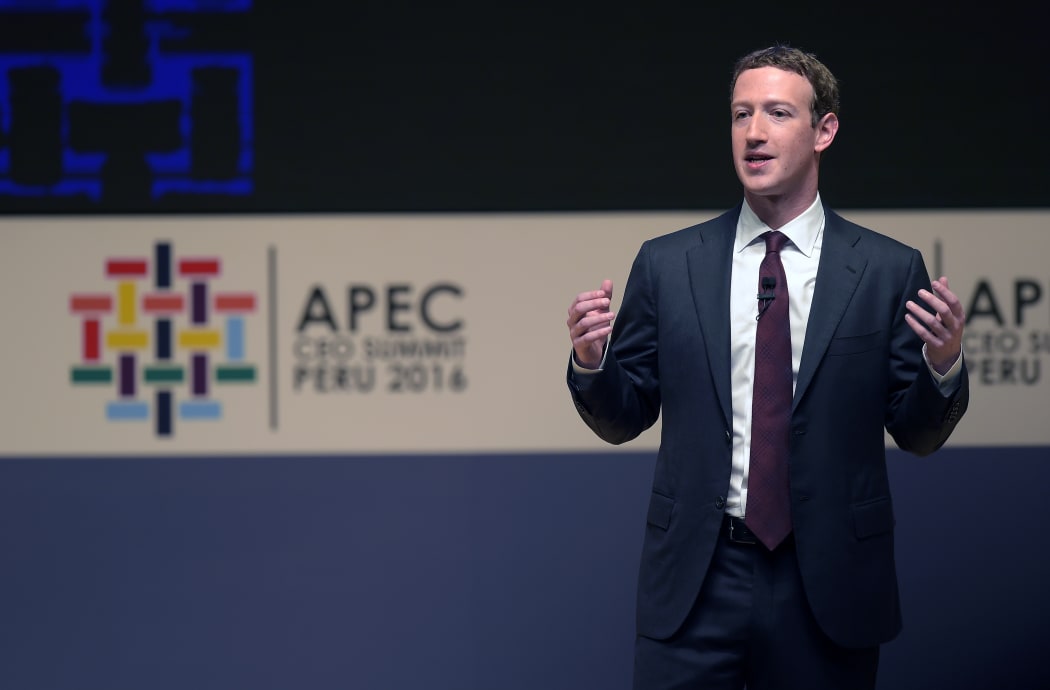If you Googled ‘final election count’ last week the top result would have been a story with the headline: "Final election 2016 numbers: Trump won both electoral college and popular vote.”
That story was false. Trump did win the electoral college, but Clinton is on track to win the popular vote by roughly 1.5 million votes.

Facebook founder Mark Zuckerberg told the APEC summit his company was responding to criticism over fake news appearing on the site. Photo: AFP
The fake story was based on a tweet put out by another website - USASupreme.com - which has in turn been accused of being a propaganda outfit linked to the Russian government.
It's not just the Russians being blamed - an investigation by Buzzfeed recently uncovered a network of Macedonian teenagers running a network of fake news to make money by selling ads.
Facebook's Mark Zuckerberg has now announced plans to crack down on the proliferation of fake news, but some have described that as shutting the gate well after the horse has bolted.
Russell Brown runs the Public Address blogsite and is a former host of RNZ's Mediawatch, and he’s been looking into the phenomena of fake news.
He says the intensity of fake news stories concerning the US election stepped up in August.
“I don’t think it’s a coincidence that it was it was in August that Facebook dumped its human moderators for its trending topics feature and trusted an algorithm,” Brown says.
He told Nine to Noon it was very easy to set up a fake news site and the successful ones were lucrative.
“The people running these fake news sites are making a lot more money than journalists are - this isn’t that hard a business to run if you’re focussed and know what you’re doing.
“It’s certainly not as hard as being a proper investigative journalist and yet you can make two to three times the money.”
The nature of this false news is circular, he says. A story last week emerged that Ford had switched truck production back to the US from Mexico because Trump had won the election.
“That was huge on Facebook - not true. Ford had actually shifted back its production in August last year. It wasn’t that Ford suddenly saw the error of its ways when Trump became president.
“Several days later Trump made the claim himself. You can only suppose he’s reading about himself on fake news sites, so this thing’s incredibly circular.”
The situation was compounded when other news organisations, including Reuters, also reporting the claim as fact, Brown says.
“Part of the problem is trusting machines. We’re in a very strange world for media where advertising is all basically done by robots.
Facebook CEO Mark Zuckerberg has promised to make things more reliable, he says.
“The problem is gullible people click on ads and performance based advertising, where you need the reader to do something, works much better with gullible people.
“I think there’s a fundamental problem for Zuckerberg there - this is how Facebook makes most of its money.”
And these false stories have more currency and are more widely shared than actual journalism as they play to peoples’ prejudices, he says.
“We really have lost touch with this idea of empirical fact…. It would be naïve to think the torrent of false news [prior to the US election] didn’t to some degree influence some people’s vote.”

